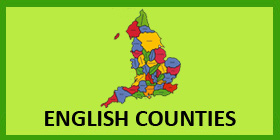




Back to the archives home page

February 2016
LEARNING NOT TEACHING AND MORE FREEDOM TO DO SO.
Some time ago I followed a large number of teachers on twitter. No particular pattern just those who caught my eye with their tweets, retweets or I had been
told I might like to follow. I witnessed a lot of passion, an enormous amount of commitment and many inventive methods that could be used to improve the learning
options for young people. But I also saw stress and anger and sometimes a feeling of helplessness.
Having been involved in education for so long, both as a teacher and resource developer, and despite the passion and commitment of our teachers and maybe
because of the stress and helplessness, I honestly believe the education of our children, and I have a personal interest here as I have six and now five
grandchildren, is nowhere near as good as it should, or could, be. In no way though, in making this judgement, do I blame teachers or pupils.
Nor do I totally blame the current Minster of Education (at the time of writing Nicky Morgan). Those before her, long before her, should shoulder much
of the blame. She, and her immediate predecessor and their advisors, have some good ideas. They should not be opposed just because they are the Minister although
I readily admit that Michael, call me Brutus, Gove, in his tenure, firstly didn’t understand the environment in which children are learning today and, secondly
wasn’t the best at putting his views across. He may, unlike some of his cabinet colleagues, have done very well from a humble background and worked very hard to
achieve what he has but it wasn’t done in today’s social climate.
When I was at primary school, and I realise I am considerably older than young Gove, we, initially, had at home, no television, three radio stations and the
only way to find out things was to read, ask and listen. Therefore, going to school and studying books, asking and listening was part of my normal culture.
Nowadays that is not so.
A list of Kings and Queens of England is not just available in a text-book or remembered by rote learning. It can be found anywhere, anytime. While you may
then condemn one of the back-stabber's views on how history should be taught, and in essence I actually agree that knowing the Kings and Queens is a vital part of
understanding our past, it merely confirms my view that he lacked somewhat in communication skills. However, the desire by others to condemn his view means that we
may be missing the biggest danger in our lives. We are, without a doubt, an information-based society but that does not automatically convert to a knowledge-based
society. Information is of little use unless you know how to use it. Albert Einstein said that “information is not knowledge” so that list of Kings and Queens,
however it is obtained, does not give us knowledge, it gives us information and, indeed, facts.
I believe it is knowledge that we should be fostering in our schools and in education in general. That is what, in these last 30 or so years, I have sought to
do. My previous post made the point about the difference between teaching and helping someone to learn. Plato said, so I read, that “human behaviour flows from
three main sources: desire, emotion, and knowledge.” It is this infectious desire to learn that we should be encouraging in our young people.
We have today a wonderful array of tools to make learning more exciting. If you want young people to learn, you have to make them want to do it, amid all the
exciting distractions elsewhere. Gaining knowledge by reading books, asking questions and listening to answers, as I did, is no longer the only way. We now
communicate in more modern ways and it is these we should make use of to help our learners.
I stated that it was not, in these few posts, my wish to find fault with teachers or pupils, nor parents or even Ministers of Education, for the state of
education as it is. For sure we need to acknowledge the mistakes, and all four categories will have made some, but you achieve nothing by merely pointing out the
faults of others. Cicero said that “it is the peculiar quality of a fool to perceive the faults of others and to forget his own.” The way forward is to understand
the situation, acknowledge it could be better and work together to improve things.
It is this desire to improve things that has persuaded me to share my thoughts in the same way that it persuaded me to become involved in education back in
the eighties. I am sure some will disagree with things I say and that is how it should be. If we all agreed we would be doing everything already. I hope, however,
that you will not ridicule my views, or me, because I completely agree with Oscar Wilde that “ridicule is the tribute paid to the genius by the mediocrities”.
More seriously, ridicule is so blatant, so shallow and does no help in moving things forwards. An intelligent person can see ridicule for what it is and easily
identify that it is not an argument against an idea or a thought or even a person.
Disagree with me but try to understand where I am coming from and try to have an argument against my views. It may be an argument that wins me over.
![]()

